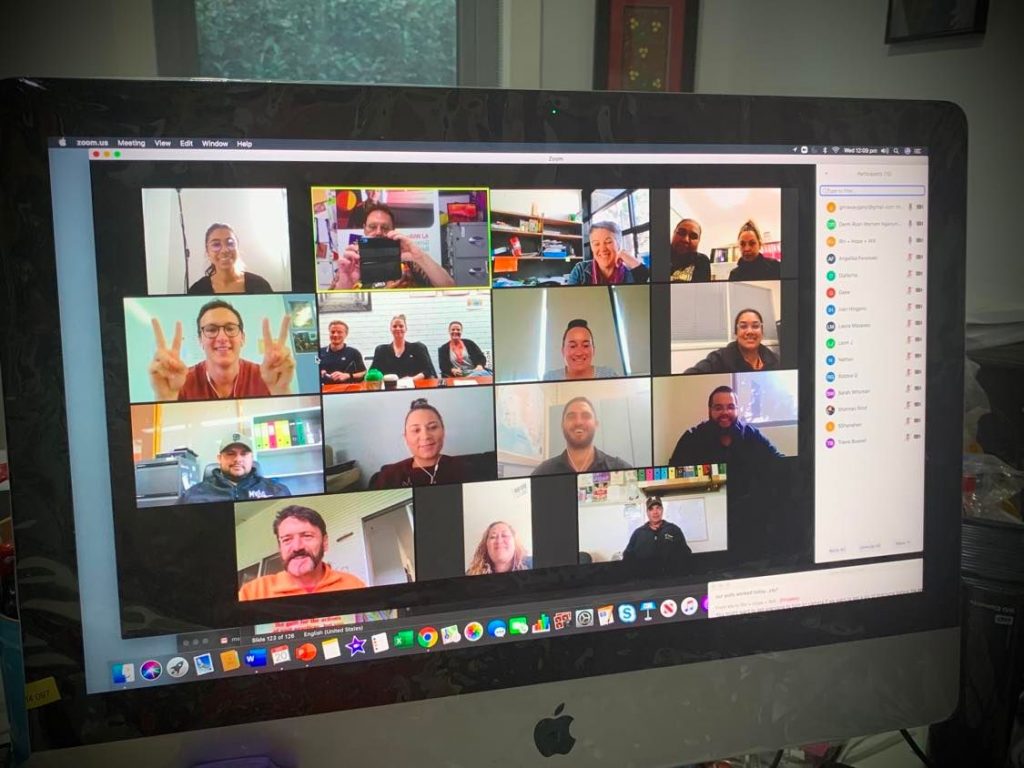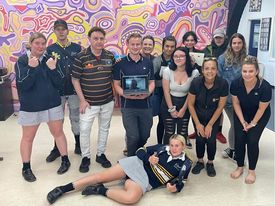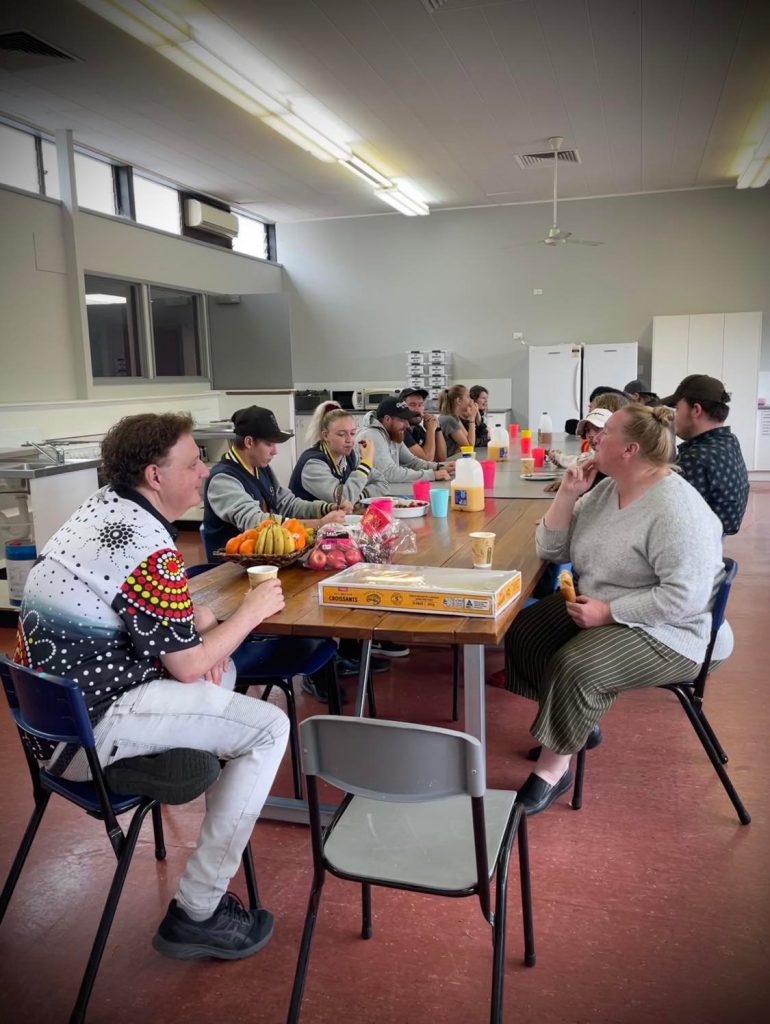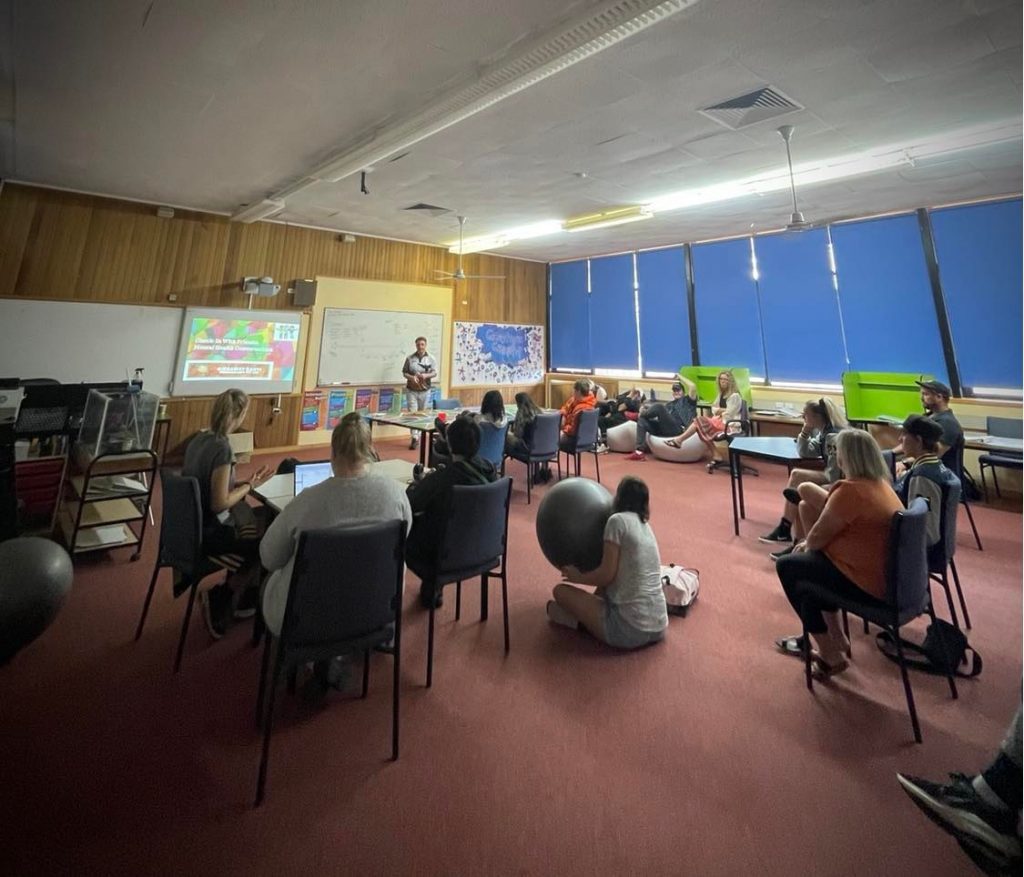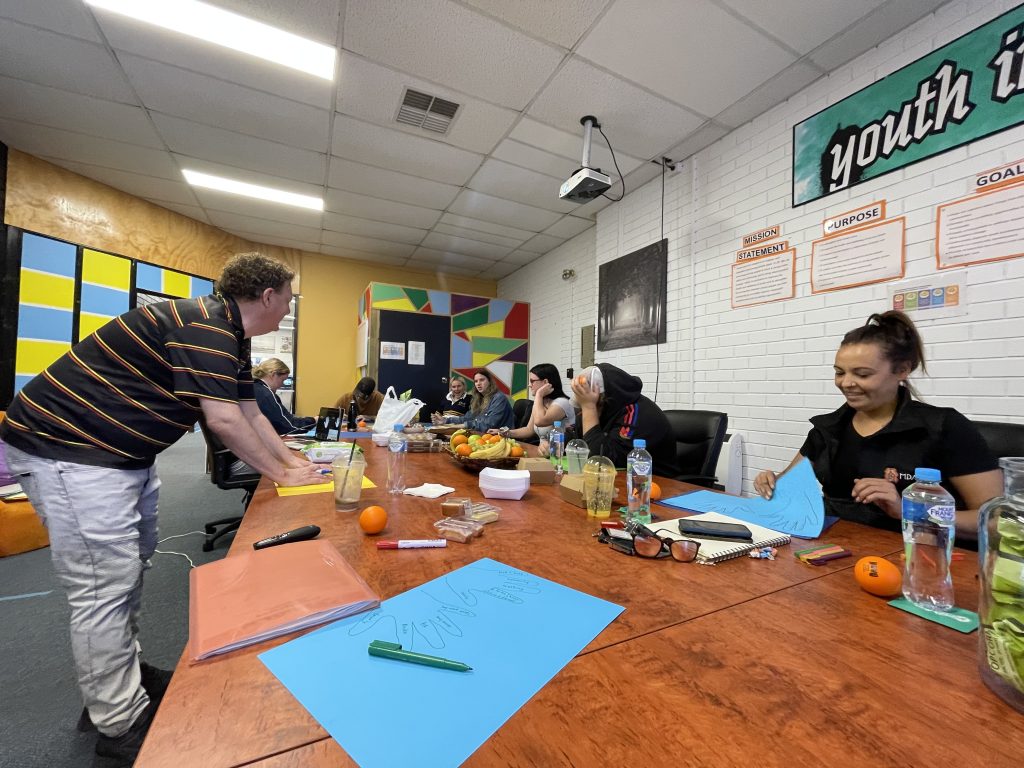Foundation for Rural & Regional Renewal (FRRR)
$1.25m in grants to be made available
The Foundation for Rural & Regional Renewal (FRRR) and CCI Giving have agreed to a five-year extension to their partnership and national grants program, In a Good Place (IAGP). This means that the grant program will now run until at least 2027.
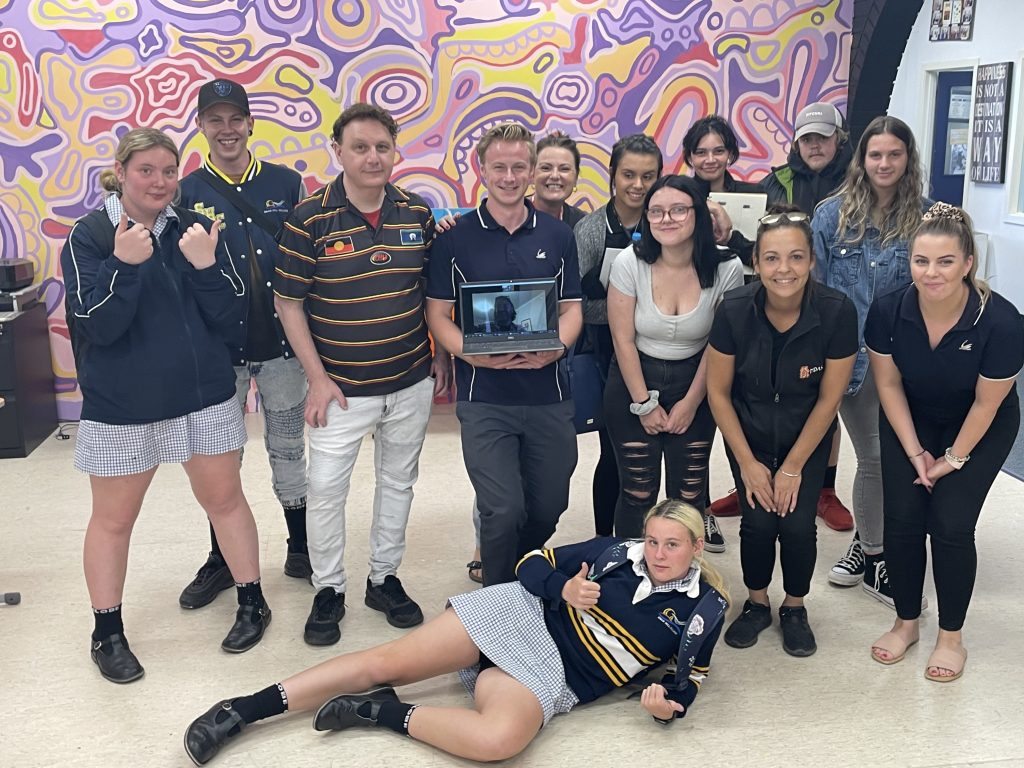
CCI Giving has also made a commitment to increase the funding available each year by $50,000, meaning that there will be $250,000 available to applicants annually, starting next year.
The partnership between CCI Giving and FRRR began in May 2018 and, since then, $800,000 in grants have been awarded to 53 projects across remote, rural and regional Australia through the IAGP program.
This program strengthens mental health in rural communities by supporting locally-led initiatives that reduce social isolation, increase social participation and connectedness and encourage people to seek help in tackling mental health challenges.
Jeremy Yipp, CCI General Manager, General Insurance Claims and Chair of CCI Giving, said that they are committed to providing rural Australians with greater access to mental health care.
“There are many stressors when it comes to mental health and, sadly, the pandemic has exacerbated these, particularly among young people living in rural areas who don’t have the same access to mental health services as those living in cities.
“There are key groups working on the ground, at the local level, who we want to ensure have the support to implement initiatives that they know will make a difference.
“We are always stronger when we work with others, and we are delighted to be extending our relationship with FRRR. I know that working closely with FRRR is vital to the impact and effort of the many organisations who are supporting communities and people who are at risk of mental ill health. Five years and additional funds is something to really celebrate,” said Mr Yipp.
Natalie Egleton, CEO of FRRR, said that this commitment from CCI Giving provides much-needed certainty to rural Australia.
“Historically, remote, rural and regional communities across Australia haven’t had the equity of access to the mental health and wellbeing resources that they need. With the added pressure of the challenges that these communities have faced in recent years, access to these kinds of services is now more crucial than ever before.
“Our Heartbeat of Rural Australia survey showed that as a result of consecutive natural disasters and the pandemic, there has been lowered resilience, increased fatigue and stress, and high levels of mental health illnesses in rural communities. CCI Giving’s commitment of increased grant funds and the certainty of it being on offer for the next five years, provides these communities with security and greater access to funding for community mental health projects that can have a profound impact for those involved.
“At FRRR, we have loved working alongside CCI Giving, providing support and tools to these vital, community-led initiatives. We couldn’t be more delighted to announce the five-year extension of our work together,” Ms Egleton said.
The next round of IAGP grant applications will open 20 April 2022. To find out more about this program go to https://frrr.org.au/funding/place/in-a-good-place.
Youth mental health is an issue that many organisations and communities across the country work hard to improve. Raising awareness through conversation and proper guidance is crucial to improving and strengthening the mental health of young Australians. In the northwest of Victoria, you’ll find the city of Swan Hill where Youth Affairs Council Victoria (YACVic) are doing just that. As the leading advocate for young people aged 12-25 in Victoria, they work closely with young Victorians and the sector to support them and deliver effective advocacy.
Over the past two years, YACVic have hosted the ‘Turning Ideas into Action’ and ‘What Matters’ youth forums across Victoria. Through these forums, young people have identified mental health as a major priority. A report conducted in 2010 (Working Together: Aboriginal and Torres Strait Islander Mental Health and Wellbeing Principles and Practice) identified young Aboriginal people are at increased risk of experiencing mental illness and are also less likely to engage with mainstream youth mental health services. To improve this situation, YACVic wanted to create a space that would be culturally safe and relevant for Aboriginal and Torres Strait Islander youth.
YACVic sought funding to deliver culturally specific Mental Health First Aid (MHFA) training program – Deadly Yarning & Learning. The training session would target 20 Aboriginal and Torres Strait Islander young people and then ten additional people to work with them on a regular basis as mentors in Swan Hill and Robinvale. The training would be provided by AJ Williams-tchen from Girraway Ganyi to make sure that both the content and delivery is done in a competent and safe manner.
Using a $13,480 In a Good Place (IAGP) grant, supported by CCI Giving, YACVic would partner with local services in the area including Mallee District Aboriginal Services and Robinvale Secondary College to provide the training over two days in each location. The following six months would then involve regular monthly community of practice sessions for the 20 participants to discuss how they have been able to put into practice their training since the initial sessions. The catch ups would also be used as a safe space for debriefing and continued peer learning and development, but also as a way to identify any key issues that had arisen in the community.
After having one training session in each location, YACVic were required to quickly adapt the original plan, with the COVID pandemic and lockdowns causing serious disruptions to the project. To ensure the safety of everyone involved, YACVic decided to postpone the face-to-face youth training component of the project until restrictions eased. They were, however, able to take the mentor training online, which proved to be quite beneficial as they were able to bring five more people on as mentors.
By undertaking the training and participating in the monthly community of practice sessions, Aboriginal and Torres Strait Islander young people will gain skills in MHFA, connect with each other, relevant workers and service providers and increase their confidence and leadership skills while helping to shape local, culturally safe responses to mental health.
Mental Health training helps community get in a good place
With the effects of plunging milk prices and bushfires in South West Victoria, the community was feeling strained. Front line workers were regularly being confronted with people breaking down because they couldn’t pay their bills, afford feed for their stock or feeling financial pressure.
The Simpson & District Community Centre (SDCC) knew it was important to keep the conversation about mental health in the community open, to continue to break down the stigma associated with asking for help. So, they wanted to equip local community members with the skills to recognise mental health issues and provide resources for referrals to support services, as well as give them skills in self-care, given they were dealing with more and more people in crisis.
SDCC was established almost four decades ago to support Western Victorian dairying communities. Around 50 people a week use its facilities for meetings and activities – from craft, scrabble days, children’s activities, adult education, digital literacy, a Men’s Shed programme and more. The centre puts considerable effort into reducing social isolation and increasing health and wellbeing in the area.
The Simpson area has been supported by a Dairy Community Support Officer who works with farming community families in crisis. In three years, the social worker’s client numbers went from 9 to 98. She identified a number of mental health issues facing the community including anxiety, depression, drug and alcohol abuse and self-imposed isolation. The community has had one suicide since the beginning of the dairy crisis and wanted to do whatever was needed to prevent more.
Through the In a Good Place Program, funded by CCI Giving, FRRR was able to help fund the delivery the training. In March 2019, nine community members participated in a two-day Mental Health First Aid course. Another session ran in March 2020, with a half day refresher for the previous years’ participants.
In total, 16 members of the community were provided with the training and skills to identify and start a conversation regarding mental health. Those trained included workers from the local supermarket and Post Office, stockfeed supplier and vet group, as well as dairy farmers and volunteers from the Football Netball Club, Men’s Shed, Community Centre, Cricket Club, CFA and Landcare network. The array of participants meant that there was great community coverage, with everyone attending wearing “more than one hat” – so those new skills are going into nearly every organisation and workplace in Simpson.
Furthermore, the instructor for the First Aid program and the Dairy Community Support Officer were able to identify an opportunity to secure funding for additional training that will reach the community, regarding Mental Health in the elderly population. Transitioning off farms for older people is an area of mental health difficulty that the Support Officer sees first hand in her work in the community.
The SDCC maintains that if just one person can be supported through a crisis without a tragedy, then the program will be a success.
“Training more people in the community to recognise the signs and direct them to help or help to them can only improve the long term outcomes for our community and increase the resilience and sense of connection.
“By providing the training we are giving people the skills to take back into the community at their workplaces, homes and recreation activities. The more people who are able to recognise and respond to the signs of deteriorating mental health the stronger our community will be. These skills will be maintained for life and can be shared.”
SDCC Final Report
Congratulations to the SDCC for the great strength and support they provide and their ability to adapt to the community’s changing needs.
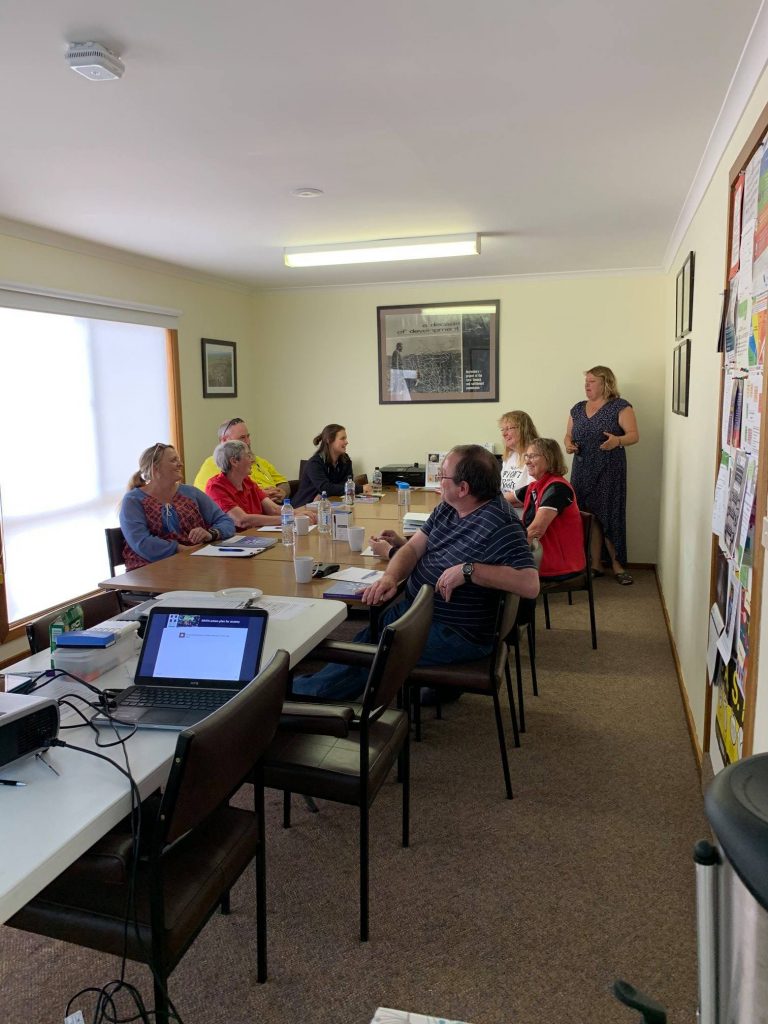
FRRR has awarded $200,000 to 11 locally-led community initiatives that will provide mental health and wellbeing support for remote, rural and regional communities.
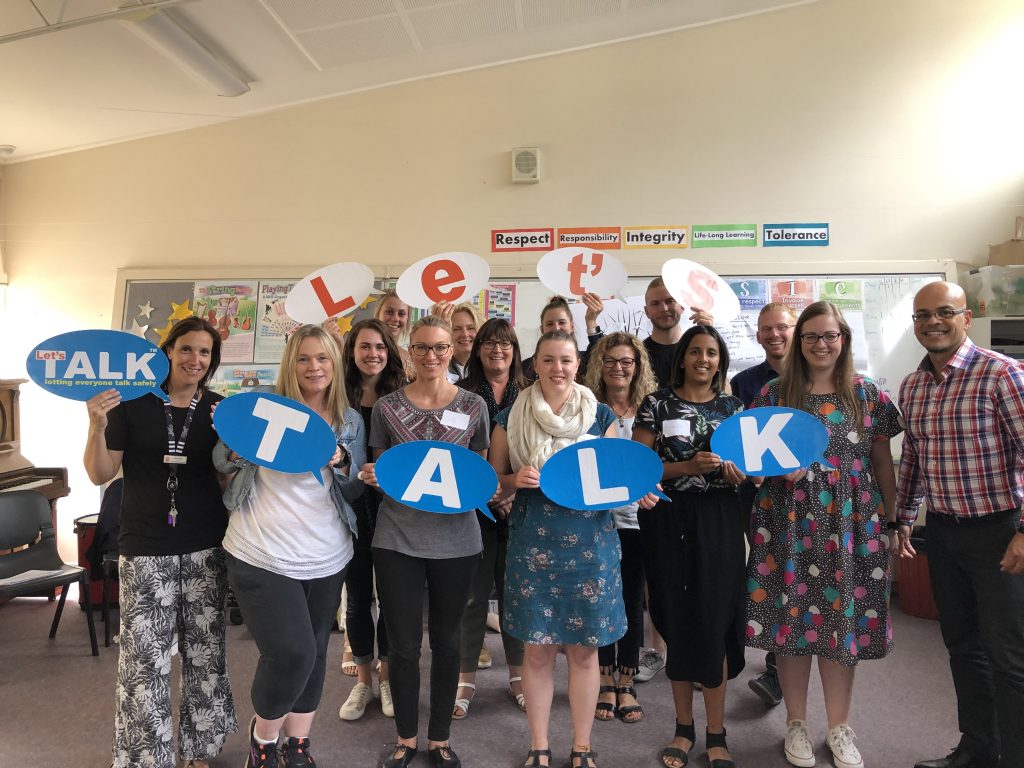
Funded through the In a Good Place (IAGP) program, these grants provide support for community-driven initiatives that reduce social isolation, increase social participation and encourage people in remote, rural and regional communities who are at risk of, or are experiencing, mental health issues to seek help. The national grant program, now in its fifth year, is funded by CCI Giving, the charitable foundation of Catholic Church Insurance (CCI).
This year, the IAGP grants awarded range from $12,000 to help local businesses and their employees in Kingaroy, QLD to support and improve mental health and wellbeing through a series of workshops, through to $20,000 to provide immediate, person-centred, and compassionate care for community members experiencing mental distress by establishing a peer-staffed, community drop-in centre in Castlemaine, VIC.
Natalie Egleton, CEO of FRRR, said it’s critical to offer this program, as many rural communities across Australia don’t have access to the level of resources that they need when it comes to mental health and wellbeing support.
“Many rural people rely on a sense of strong community to get through the difficult times. But, after a year and half of COVID-19 restrictions, the events and activities that would usually be a way for people to connect and heal, haven’t been able to go ahead. So, many people are feeling increasingly disconnected and socially isolated,” Ms Egleton explained.
“On top of the cumulative impact of natural disasters like drought, fires, flood and cyclones, this has meant that many rural Australians now have an even greater need for both preventative mental health measures, as well as non-clinical support for mental health and wellbeing issues. It also means that communities have had to think outside of the box and find new ways of helping people to connect and care for their mental health.
“That’s why it’s really encouraging to see so many innovative, community-led initiatives that are geared towards helping people in remote, rural and regional communities gain better access to the mental health support that they need.
“We’re grateful to be able to partner with CCI Giving to support these local projects, which we know will really make a difference,” said Ms Egleton.
Jeremy Yipp, CCI General Manager, General Insurance Claims and Chair of CCI Giving, said that improving rural Australia’s access to mental health resources is crucial.
“The In a Good Place program provides important support that is now, more than ever, vital for the mental wellbeing of rural Australia. We are pleased that through our partnership with FRRR we are able to provide funding for these community-led initiatives designed to support and connect the community to the tools they need to care for their mental health and wellbeing,” Mr Yipp said.
Some of the 11 mental health initiatives funded include:
- Wesley Mission Queensland – Murgon and Cherbourg, QLD – Marcus Mission – Building Suicide Prevention Community Capacity in South Burnett – $18,619 – Boost the community’s ability to support vulnerable males by training and supporting local men to deliver the Marcus Mission suicide prevention initiative.
- Pro Patria Centre Ltd Ashmont, NSW – Kitchen Garden to Plate: Nutrition for the Mind, Body, and Soul – $17,160 – Support the mental health and social connection of veterans, first responders and their families by developing a kitchen garden to support future therapeutic gardening and nutrition programs.
- Quorn Community Sporting Assoc Inc – Quorn, SA – Don’t Wait til You’re Stuffed! – $13,900 – Encourage people to come together and boost community resilience by bringing in a guest speaker to share vital tips and advice.
- Dignity Supported Community Garden – Nubeena and Dodges Ferry, TAS – DIGnity Supported Gardening Sessions – $19,440 – Improve social participation and support mental wellbeing of vulnerable community members by providing expert mental health counselling and Occupational Therapist support to participate in therapeutic horticulture sessions.
- Healesville Primary School Healesville, VIC – Let’sTALK Program at Healesville Primary School – $20,000 – Empower staff, students and families to feel safe to talk openly about their mental wellbeing and provide skills to encourage and support help seeking behaviours through a shared program of learning.
To support grants like this through FRRR, make a tax-deductible donation at https://frrr.org.au/giving/.
The full list of grant recipients and their projects are below:
| Organisation | Project | Location | Grant |
|---|---|---|---|
| Castlemaine Community House Inc | Castlemaine Safe Space Support community members experiencing mental distress by establishing a peer-staffed, community drop-in centre by providing immediate, person-centred, and compassionate care in a non-clinical setting. | Castlemaine, VIC | $20,000 |
| Central West Family Support Group Inc | In a Good Place Build mental health awareness in the community to reduce stigma and improve mental health and wellbeing | Condobolin / Lake Cargelligo / Murrin Bridge, NSW | $20,000 |
| Circular Head RSL Sub Branch Inc | Canines Fostering Community Connections - Improving Veteran Well-being in Rural Tasmanian Communities Improve the social participation and mental health of veterans by supporting their pairing with and training of Assistance Dogs. | Smithton, TAS | $19,613 |
| Dignity Supported Community Garden | DIGnity Supported Gardening Sessions Improve social participation and support mental wellbeing of vulnerable community members by proving expert mental health counselling and Occupational Therapist support to participate in therapeutic horticulture sessions. | Nubeena / Dodges Ferry, TAS | $19,440 |
| Healesville Primary School | Let'sTALK Program at Healesville Primary School Empower staff, students and families to feel safe to talk openly about their mental wellbeing and provide skills to encourage and support help seeking behaviours through a shared program of learning . | Healesville, VIC | $20,000 |
| Kingaroy Chamber of Commerce & Industry Inc | SHINE - Supporting Mental Wellbeing through Information, Leadership and Education - Stage 2 Boost and strengthen community resilience by running workshops to help local businesses and their employees support and improve mental health and wellbeing. | Kingaroy, QLD | $12,000 |
| Pro Patria Centre Ltd | Kitchen Garden to Plate: Nutrition for the Mind, Body, and Soul Support the mental health and social connection of veterans, first responders and their families by developing a kitchen garden to support future therapeutic gardening and nutrition programs. | Ashmont (Wagga Wagga), NSW | $17,160 |
| Quorn Community Sporting Assoc Inc | Don't Wait til You're Stuffed! Encourage people to come together and boost community resilience by bringing in a guest speaker to share vital tips and advice. | Quorn, SA | $13,900 |
| Southern Yorke Peninsula Community | Youth on Yorkes Help local youth-focussed organisations to understand and support young people to develop mental fitness and resilience through the employment of a dedicated youth worker. | Yorketown, SA | $20,000 |
| The Southern Highlands Foundation | Grand Friends Foster friendships and increase social connection by bringing together residents from the local aged care facility with primary school children for shared activities. | Bowral / Moss Vale, NSW | $19,268 |
| Wesley Mission Queensland | Marcus Mission - Building Suicide Prevention Community Capacity in South Burnett Boost the community’s ability to support vulnerable males by training and supporting local men to deliver the Marcus Mission suicide prevention initiative. | Murgon / Cherbourg, QLD | $18,619 |
$200,000 available to fund community-led mental health initiatives
FRRR, in partnership with CCI Giving, is once again offering grants to support grassroots initiatives that improve and strengthen the mental health of communities in remote, rural and regional Australia, through the In a Good Place (IAGP) program.
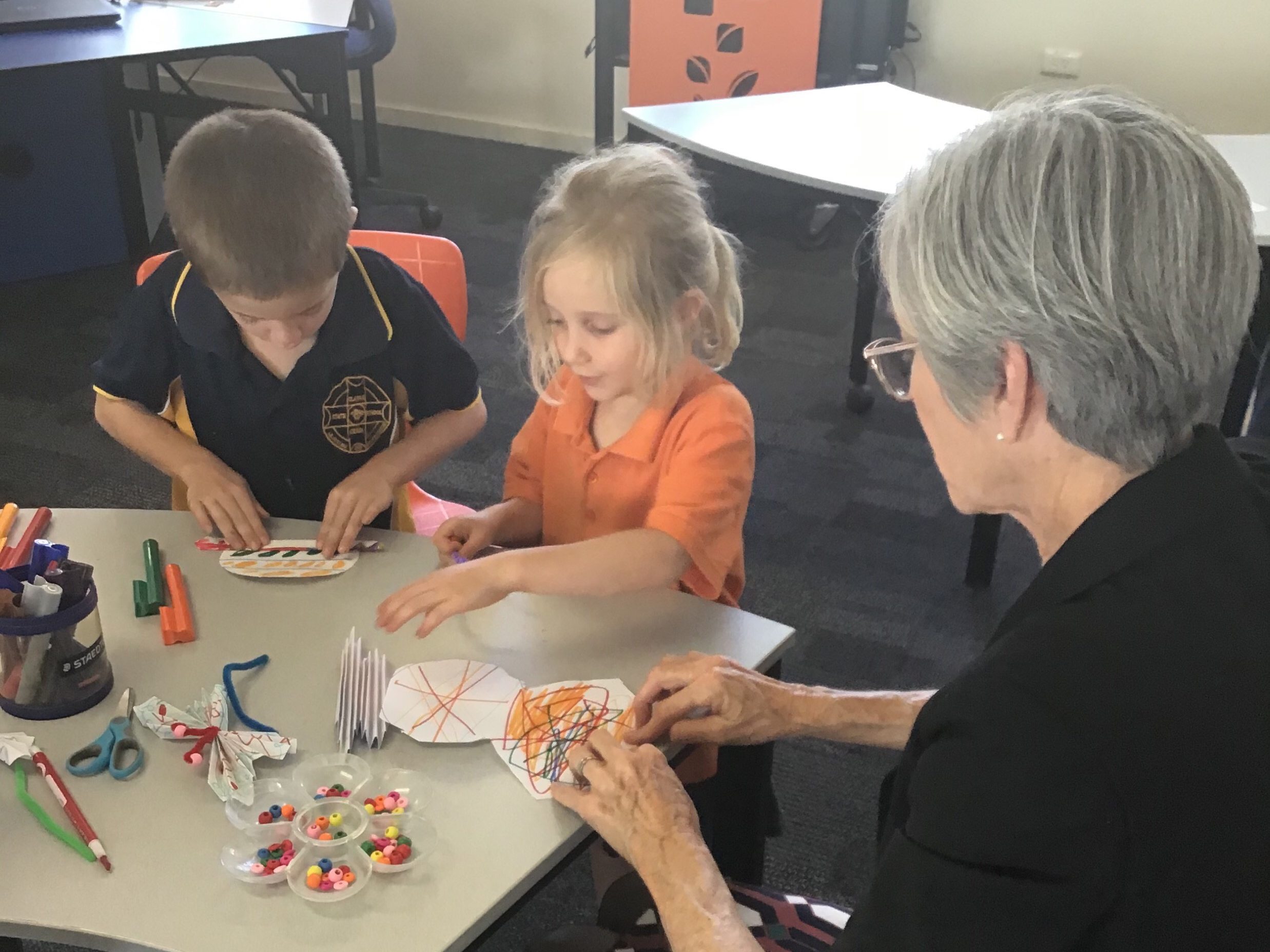
The IAGP program, now in its fourth year, is the centrepiece of a five-year partnership between FRRR and CCI Giving. To date, IAGP has awarded $600,000 in grants to 42 community-led projects that foster good mental health and wellbeing in remote, rural and regional communities.
This year, $200,000 is available, with grants up to $20,000, for projects to ensure that communities have access to mental health services and support; to build and nurture social connections and community participation; and provide access to mental health training and education.
Jeremy Yipp, General Manager, General Insurance Claims at CCI and Chair of CCI Giving, said social connectedness is so important for the mental wellbeing of those living in rural communities, particularly during times of crisis.
“In the last three years, the In a Good Place program has funded a range of community-led projects that have encouraged people to stay connected, seek help and feel supported, especially in rural areas recovering from events such as drought, flooding and now COVID-19.
“Like CCI Giving, FRRR shares our belief in the value and importance of remote, rural and regional communities and recognises that maintaining good mental health is a multi-faceted and lifelong process, requiring a range of approaches to accommodate for different needs and priorities – like responding to an unprecedented event,” said Mr Yipp.
Natalie Egleton, FRRR’s CEO, said that COVID-19 has amplified the need for equitable access to services and trained support in rural Australia.
“As the impact of the pandemic on people’s mental health and wellbeing continues to evolve, it’s more important than ever that those living in remote, rural and regional Australia have access to mental health services, tools and support,” Ms Egleton said.
These tools include mental health training and education, which can then go on to ensure greater access to critical services and professional support.
“One of the very first grants funded through this program was led by Lifeline Tasmania’s Suicide Bereavement Support Group. Their project expanded its program outside of Hobart and into four rural Tasmanian communities that had been identified as having heightened risk of impacts from suicide deaths in the community,” Ms Egleton explained.
“Through the project, locals were empowered to provide access to mental health support in their own community and were given training and resources to increase community understanding and knowledge of suicide postvention.
“Our partnership with CCI Giving means that we can support these kinds of community-based, non-clinical mental health approaches, which we know are more approachable for people in rural areas who may be unwilling to seek help due to a culture of self-reliance, and fear of the stigma associated with asking for help,” Ms Egleton said.
FRRR expects this will be a highly competitive program and so there is a two-stage application process. A brief Expression of Interest must be submitted no later than 8 June 2021. The Expression of Interest form and more information is available here. Applicants can also call 1800 170 020.
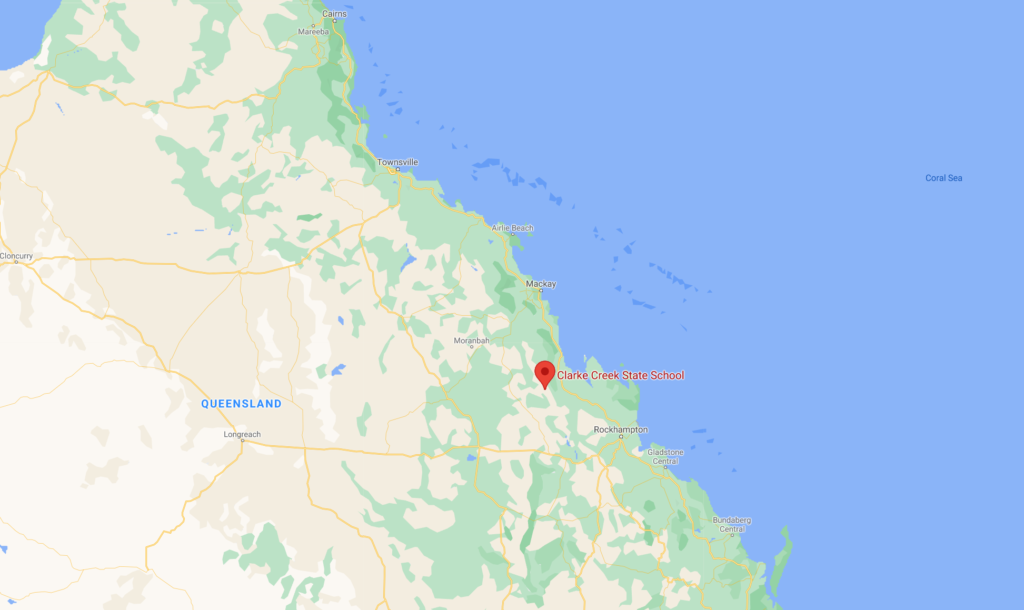
In the remote locality of Clarke Creek in Queensland’s Isaac Region, a community of 320 people have been doing it tough in recent years. In March 2017 Tropical Cyclone Debbie and flash flooding devastated the area, and then came the drought.
People from Clarke Creek mostly own or work on cattle stations, many run by extended and intergenerational family groups. School-aged children in the area were exposed to many impacts of Cyclone Debbie – from damage to community and family infrastructure, livestock and pet animal losses, to financial strain putting pressure on their families.
A problem-solving school
The saving grace of this community is the Clarke Creek State School (CCSS), which, in the absence of a township, serves as the community hub. It caters to the needs of 17 students from Kinder to Year 6, extends support to siblings, parents and extended families of those students, and provides a meeting place for all groups in the area, including the P&C Association.
The Clarke Creek P&C Association knew it was critical to support children through all this, and that school can help facilitate healing by providing the sense of normality that’s needed after a disaster. Since residents of Clarke Creek had to travel up to 230kms to access health and professional services, the P&C Association knew that, for help to be constructive, it would need to be brought into Clarke Creek.
The school had previously gained the services of a chaplain directly though the National Schools Chaplaincy Program, however the school could only afford one visit per fortnight without outside funding. By late 2018, it was clear that there was a need for ongoing disaster support for families. With so many pressures affecting the ability to fundraise locally in the tiny community, the P&C Association applied to FRRR’s In a Good Place program. A grant of $10,000 funded by CCI Giving essentially doubled the chaplain’s visits to weekly from July 2019 until March 2020, when the Department of Education funding applications opened.
Chaplaincy support proves vital
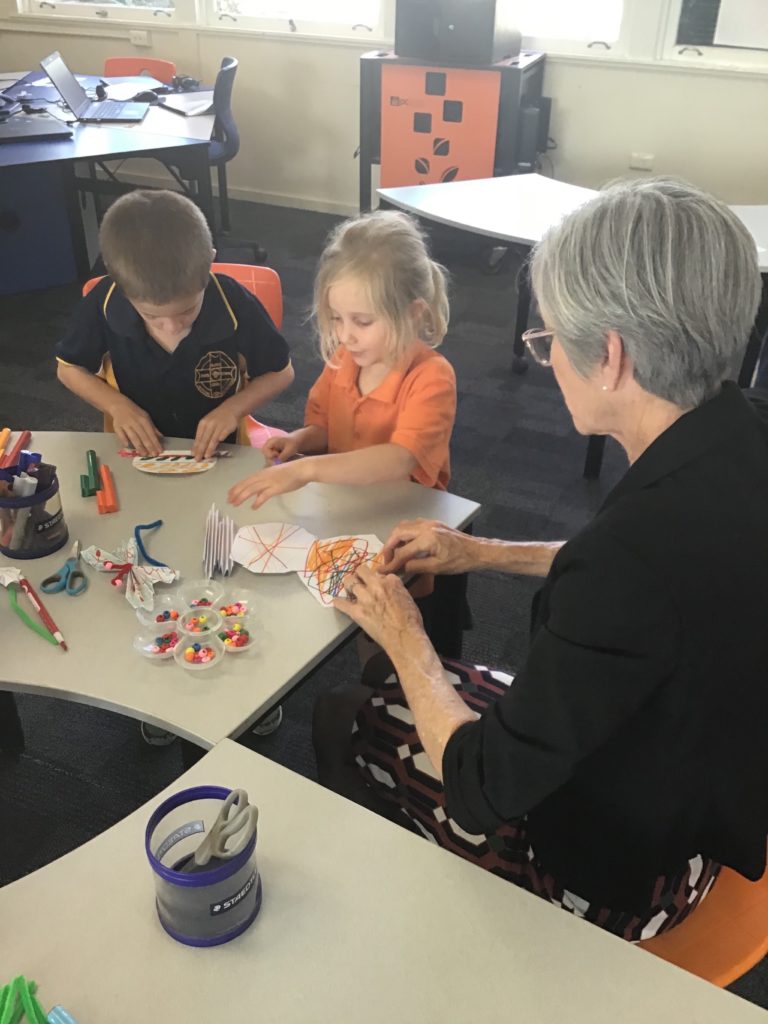
In small schools, the school chaplain is often the welfare provider, and plays a key part of the school support team.
The chaplaincy support at CCSS started shortly after the school and community were devastated by cyclone Debbie, and proved to be highly valuable to students, staff and the broader community, in their ongoing recovery and general mental health and wellbeing. The chaplain attends the school one day each week, working with the children in groups and one on one sessions. She provides emotional support and fosters leadership and kindness in the classroom, playground, and at school events.
“Chappy’, as she is fondly nicknamed, has been imparting those crucial life skills to the children and helping them to deal with the many challenges unique to living in a remote community in an isolated context.
It was a crucial time to bring in extra support, and the P&C Association don’t make light of the importance of Chappy’s role. Throughout COVID-19, the chaplain helped children deal with changes to their learning and became a central figure of stability for parents and the wider community.
The CCSS Principal notes how important the chaplain is in helping students transition through their education.
“I think the older students love the way she makes sure they all know that they have a voice and that someone cares enough to make the time to listen. She helped prepare older students for boarding school, and taught younger ones to be engaged in learning and practising kindness.”
The chaplain attends school and community events, and works with other schools in the cluster, thus creating support networks in the broader communities and creating an inclusive atmosphere and strengthened sense of community. But it’s the flow-on effects from the children’s gains that have the greatest power, as described in the final report:
“Our greatest achievement has been just stabilising our community. Oddly, this was really achieved through the children coming home from school with this positive energy and outlook from their time with Chappy, rather than working direct with parents and community. When the parents knew the kids would be ok and had someone strong to lean on, it was like a weight lifted and the school became the place of ‘normalcy and support’. Things picked up from there.
“In a small school and community, we have to stick together. Chappy has fostered this sense of belonging and caring in our children and it emanates from there.”
Grants up to $20,000 available through the In a Good Place program
8 July 2020: Grants of up to $20,000 are now available to not-for-profit organisations (NFPs) throughout rural, regional and remote Australia to support projects that improve and strengthen the mental health of their communities through the In a Good Place (IAGP) program.
The IAGP program, now in its third year, is the centrepiece of a five-year partnership between the Foundation for Rural & Regional Renewal (FRRR) and CCI Giving. It is based on a shared belief in the value and importance of rural, regional and remote communities and a commitment to strengthening mental health and wellbeing within those communities.
A pool of $200,000 is available for community-led projects that reduce social isolation, increase social participation and connectedness, and increase access to help for people within rural, regional and remote communities who are at risk of, or are experiencing, mental health issues.
Jeremy Yipp, Chief Risk Officer of CCI and Chair of CCI Giving, said initiatives that increase the resilience and social connectedness of rural communities not only have direct mental health benefits, but often also lead to improved mental wellbeing by increasing productivity, economic participation, and employment.
“We have seen so many projects funded through the In a Good Place program that have been a beacon of hope for those living in communities doing it tough. They have made a real difference to the resilience, social connectedness and mental wellbeing of rural Australia. Even just sharing experiences and knowing that you’re not alone is, in itself, powerful.
“We encourage community groups to put forward proposals for projects that will help to tackle the mental health challenges their community is facing, especially with the additional pressures encountered due to COVID-19,” said Mr Yipp.
Natalie Egleton, CEO of FRRR, said that COVID-19 has highlighted the impact that isolation can have on mental health and demonstrates why social connectedness, particularly during times of crisis, is so important for the mental wellbeing of those living in rural communities.
“Rural communities have been hit by drought, bushfires, floods and now the impact of COVID-19 restrictions. These events have a huge impact on the mental health of those living in these regions,” Ms Egleton said.
For people living in rural, regional and remote Australia, accessing mental health support is typically more complex than in metropolitan areas. This is due to a myriad of factors including a lack of mental health expertise within the community, the considerable travel time to reach mental health services and specialists and an overarching culture of self-reliance and fear of stigma.[1][2]
“Mental health in rural, regional and remote Australia is a complex issue. Overwhelmingly, there is a consistent need in these communities for better access to mental health services, as well as greater opportunities to strengthen social-connectedness and participation,” Ms Egleton explained.
“It’s not just about those that have a mental health condition having access to clinical services, but also how we can support opportunities to promote mental wellbeing, through the likes of workshops or mental health first-aid training, or simply providing a safe place to chat to someone.”
“Each community is different; with different mental health concerns, needs and priorities. Our partnership with CCI Giving means that we can support community-led initiatives that are meaningful and will have the greatest impact on the mental wellness of those living in these rural communities,” said Ms Egleton.
Applications open on 7 July 2020. FRRR expects this will be a highly competitive program and so there is a two-stage application process. A brief project outline must be submitted no later than 7 August, and full applications for invited projects are due by 11 August 2020.
[1] National Mental Health Commission. Monitoring mental health and suicide prevention reform: National Report 2019. Sydney: NMHC; 2019.
[2] Australian Bureau of Statistics. People living in remote areas are less than half as likely to access a mental health service. Health case study. 2016. Retrieved from https://bit.ly/3e67hIM.
Over $100,000 in grants awarded across rural, regional and remote Australia
Bendigo, 12 November 2019: Eight projects that support and encourage good mental health practices in rural, regional and remote communities have received grants from the Foundation for Rural & Regional Renewal via the In a Good Place program.
The projects will share $100,725, thanks to support from CCI Giving, the charitable foundation of Catholic Church Insurance (CCI).
Over a million dollars in grant funding was requested in this third round of In A Good Place, highlighting the need for mental health interventions across rural, regional and remote Australia.
“This third round saw an increase in the number of applications using art-based activities as a tool to encourage community engagement around mental health and resilience,” said FRRR CEO, Natalie Egleton.Successful applications include a safe space to enable mental health conversations at the Julia Creek Dirt & Dust Festival – an area of Queensland deeply impacted by drought and flood; creative community workshops and an interactive theatre performance addressing mental ill-health and substance abuse in Hopetoun, Western Australia; and a series of targeted workshops for adolescent and adult men, focusing on improving mental health and reducing the risk of suicide in Kimba, South Australia.
“Training and skill development, particularly Mental Health First Aid, was also a strong theme. It’s been well-documented that people living in rural, regional and remote Australia don’t have the same access to health services as major metropolitan centres. This includes a lack of early intervention services, and often there are long waiting periods for services in neighbouring communities. These grants will help communities to really take charge and be as self-sufficient as possible when it comes to taking care of their own.”
Roberto Scenna, CEO of CCI and Director of CCI Giving, said that his organisation was pleased to provide funding for another round of the In A Good Place program.
“It’s vitally important that every single one of us feels empowered when it comes to our mental health. The unfortunate reality is that societal pressures and factors such as where you live mean that that’s not always possible. These grants will make a real difference throughout rural, regional and remote Australia.”
The next round of the In a Good Place program will open in February 2020. Keep an eye on FRRR’s grants calendar for the details.
The complete list of locally-led projects that have been funded this round is below.
|
Organisation |
Project |
Location |
Grant |
|---|---|---|---|
|
Apostolic Church Australia, as the Operator of a PBI |
Building a Stronger You |
Bourke, |
$10,000 |
|
Parkes High School P&C |
Parkes High Mental Health Awareness Day |
Parkes, |
$6,750 |
|
Julia Creek Dirt and Dust Festival Inc. |
Have a Yack in the Outback |
Roma, |
$10,000 |
|
University of South Australia |
A mental wellbeing program delivered in partnership with community-based men’s mental health support groups and rural South Australian football clubs / leagues |
Kimba, |
$19,900 |
|
Huon Valley Council |
Mental Health Community Response |
Dover, |
$9,255 |
|
Beyond the Bell Great South Coast |
Live4Life Southern Grampians |
Hamilton, |
$16,340 |
|
Youth Affairs Council Victoria Inc |
Deadly Yarning & Learning: Our Mental Health |
Swan Hill, |
$13,480 |
|
Ravensthorpe Regional Arts Council |
Raving About Mental Wellness |
Hopetoun, |
$15,000 |

